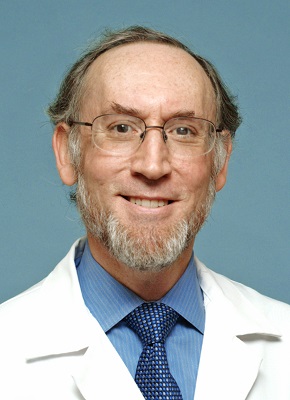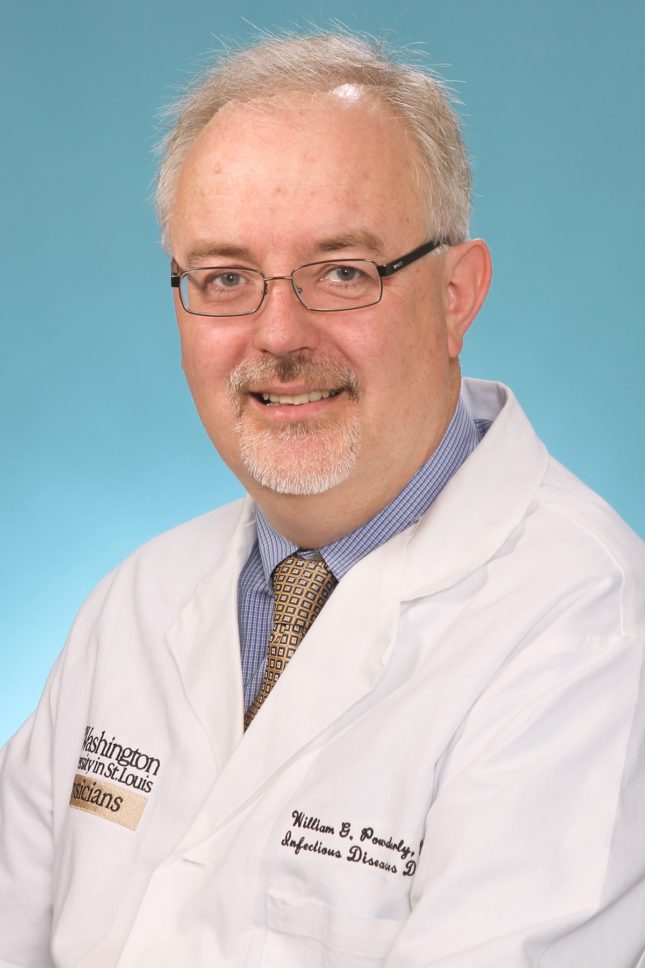As the 2016-17 academic year comes to a close, we would like to reflect on the highlights and accomplishments of the Division over the last year.

David M. & Paula L. Kipnis Distinguished Professor
We continue to grow as a Division with over 50 faculty now employed across the research and clinical sides of the mission. We anticipate recruiting additional faculty, both in bench research and in clinical sciences. We are collaborating with the Center for Human Immunology and Immunotherapy Programs to recruit bench scientists whose research focus will address the intersection of human immunology and infectious diseases; we are also recruiting at the other end of the translational spectrum and hope to add faculty interested in clinical outcomes and population health. We recently held a very successful faculty retreat that focused on translational research in infectious diseases which helped identify further areas of potential collaboration across the basic and clinical sides of the Division and should yield interesting opportunities for innovative clinical and translational research.
Even though NIH funding for research has been relatively flat-lined for the last few years, the Division has remained highly productive and successful, with over $19 million in extra-mural grants and contracts in the last year. Among the most significant awards were extension of the Bill and Melinda Gates Foundation’s funding to Dr. Gary Weil for global efforts to eradicate filariasis, renewal of the Center for Disease Control and Prevention funding of the Epicenters program to address hospital-acquired infection (led by Dr. Vicky Fraser) and support from the NIH for Mike Diamond’s ground breaking work on the pathogenesis of ZIKA virus infection.

Dr. J. William Campbell Professor of Medicine
However, we are also conscious of the on-going threat to the NIH and CDC budget in the current political climate and we have been among the leaders advocating for increased support to these agencies given the importance of existing and emerging infectious diseases to health and national security. Continued federal funding for research is also vital to encourage the next generation of investigators. The Division has put in place a very supportive environment for career development of junior faculty and currently 8 recently appointed members of the Division are recipients of career development grants. The range of topics these grants represent (norovirus pathogenesis, HIV persistence, herpes virus tropism, filariasis, enteropathogenic E. coli infection, HIV PrEP, gut bacterial resistance, and antimicrobial stewardship) reflect the breadth of research in the Division.
Our Infectious Disease course for the second year medical students, led by Drs. Steve Lawrence and Nigar Kirmani, continues to be one of the best and most popular courses. Our Infectious Disease training grant is going into its 37th year. It brings together 30 training faculty from different divisions and departments and has spawned innovations such as the ID Gateway course to expose PhD trainees to the diverse facets of ID, including clinical ID, pathogenesis, diagnostics, biodefense, epidemiology, and development of therapeutics.
Our clinical activities continue to expand and we now have six in-patient consult services at BJ Hospital, several of which are staffed by attending physicians supported by physician extenders. This new model has allowed us to ensure that our fellowship program can continue to offer a very high level of clinical training (that maintains an appropriate mix of service and education) while providing high level care to the patients of our referring physicians.
We continue to attract high quality fellows, although the diminishing national pool of applicants has offered us more challenges than previously. One of our strengths has been our willingness over the last thirty years to accept high quality international graduates, and this is now bearing second generation fruit, with fellows this year from Ireland and Spain, recommended by prior trainees, Mary Horgan and Jose Arribas who have gained great prominence on their return to their national health systems. Indeed, Mary Horgan was this year elected as President of the Royal College of Physicians in Ireland (the first woman president in over 300 years of that body’s history).
Our faculty continue to gain national prominence. One of us (BP) is almost halfway through his tenure as President of the Infectious Diseases Society of America – an appointment more challenging than usual because of the unprecedented challenges of the national political system. Hilary Babcock was elected Vice-President of the Society for Healthcare Epidemiology of America (SHEA) and Courtney Chrisler was appointed to the Clinical Affairs Committee of the IDSA. Jennie Kwon was selected as a National Academy of Medicine Fellow in Osteopathic Medicine and Caline Mattar was elected as Chair of the Junior Doctors Network of the World Medical Association (WMA).
At a local level, Mike Diamond was appointed the Gasser Professor of Medicine in recognition of his ongoing work on flaviviruses. Gary Weil received recognition from the WUSM Alumni association for his career in filariasis research. Steven Lawrence was the recipient of the Samuel R. Goldstein Leadership Award for education. Tom Bailey was chosen to receive the WUSM 2017
Distinguished Clinician Award. Steve Lawrence and Nigar Kirmani won Distinguished teaching awards from the medical students and Jeff Henderson received an outstanding Faculty Mentor Award from the graduate students.
We also hosted the third annual Gerald Medoff Lecture in Infectious Diseases, this year given by Dr. Kieren Marr from Johns Hopkins. We are grateful to all the friends of the Division who have supported this and other Divisional activities through their philanthropy.
Best regards,
Dan Goldberg and Bill Powderly